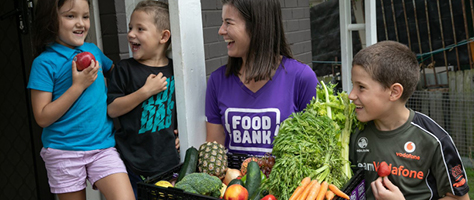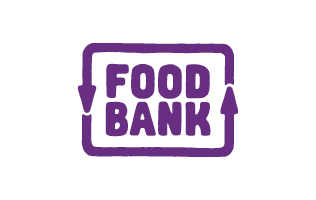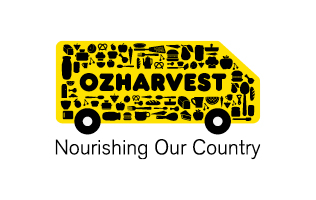Food Insecurity in Australia
The Australian Government’s Roadmap for reducing food waste explains that each year, over seven million tonnes of food are wasted in Australia. At the same time, more than one in five Australians have experienced some form of food insecurity.
It is a common misconception that food insecurity is limited to vulnerable groups such as people affected by homelessness and the unemployed. In reality, food insecurity affects people of every age, both in cities and regional or remote areas. There are many reasons why people become food insecure. Low income, payment of rent, or bill shock can cause food insecurity for individuals whether they live alone, in a family or in a share-house. You may be surprised to know that food insecurity affects more people who are in some form of employment than those who have none. To learn more about food insecurity, read the Foodbank Hunger Report here.
How ALDI is working with food banks to support Australians facing food insecurity

As a major Australian retailer, ALDI is committed to reducing food insecurity and giving surplus food to those who need it most.
We are working with food rescue organisations such as Foodbank and OzHarvest to do our part for the environment and support the community. Find out more below.
It goes without saying that 2020 was a tumultuous year. During that time, ALDI donated over 10 million meals and more than 66 tonnes of non-food items to the food rescue organisations. In the first year of the COVID-19 pandemic, we donated $450,000 to support the food relief efforts of OzHarvest and Foodbank. Alongside our donations, ALDI also initiated a national food support program with Foodbank Australia, this program enabled a further 2.5 million meals to be provided to Australians impacted by food insecurity.
During the 2019/2020 Black Summer bushfires, ALDI supported Foodbank’s Bushfire Appeal by providing financial support, the donation of products to support impacted community members as well as activated our tills nationally to raise funds for Foodbank’s Bushfire Appeal.
To learn more about our amazing food rescue partners or to make food bank donations, visit their websites:
We support food rescue organisations
How you can join the fight against food insecurity
Along with these incredible organisations that operate on a national scale, ALDI also works with hundreds of local charities to collect surplus food from our stores to help vulnerable families.
Together let’s minimise food insecurity
According to the Australian Institute of Family Studies*, the strategies required to address food insecurity for all Australians are many and varied. These include policy interventions; local level collaborations; emergency food relief initiatives; school-based programs and education.
According to Foodbank**, the amount of food that is wasted every year in Australia is costing our economy over $20 billion annually. Minimising food waste in the home positively impacts the environment and our economy.
Learn more about how you can make a difference and see some easy tips you can try next time you’re making dinner, on our Zero Waste at Home page.
*https://aifs.gov.au/resources/practice-guides/food-insecurity-australia-what-it-who-experiences-it-and-how-can-child
**https://www.foodbank.org.au/harvard-research-addresses-food-waste/?state=wa
Frequently Asked Questions
What is food insecurity?
The three key components of food insecurity are inadequate access to food, inadequate supply and the inappropriate preparation of food. Certain groups in Australia are more susceptible to food insecurity such as low income earners, single parent households and socially isolated people.
What is a food bank?
A food bank is a non-profit organisation that provides food to vulnerable people such as the homeless and those affected by natural disasters. Food banks aim to prevent hunger, usually through their own food pantry and donations from volunteers and partners.
What is food waste?
According to Foodbank, food waste includes all food intended for human consumption that either never reaches us or is thrown away by consumers. Perfectly edible produce is often dismissed if it does not meet optimal criteria such as colour, shape and size. Foods that are close to, at or beyond the “best-before” dates are often discarded – even though they are still within their “use-by” date. Large quantities of wholesome edible food are often unused or leftover and discarded from household kitchens and eating establishments.
For tips and information on how you can reduce food waste at home, check out our page Zero Waste at Home.
Why is food waste bad?
Food that is not eaten contributes to greenhouse gas emissions, sacrifices fresh water and the lives of millions of farm animals. Food waste also accounts for billions of dollars’ worth of human labour as well as pesticides that are purposelessly applied.

